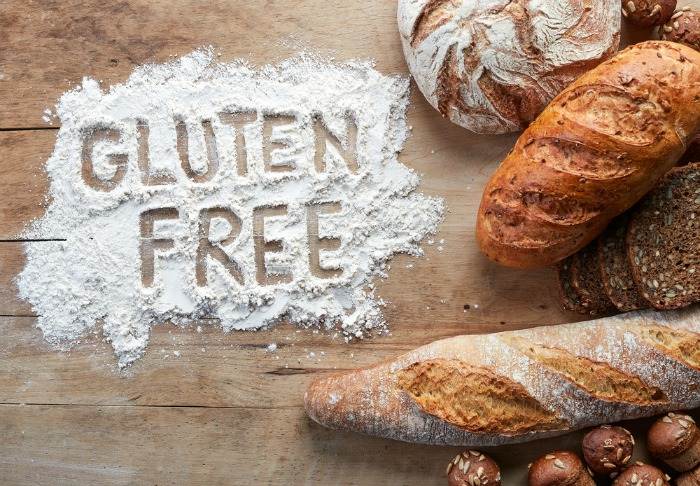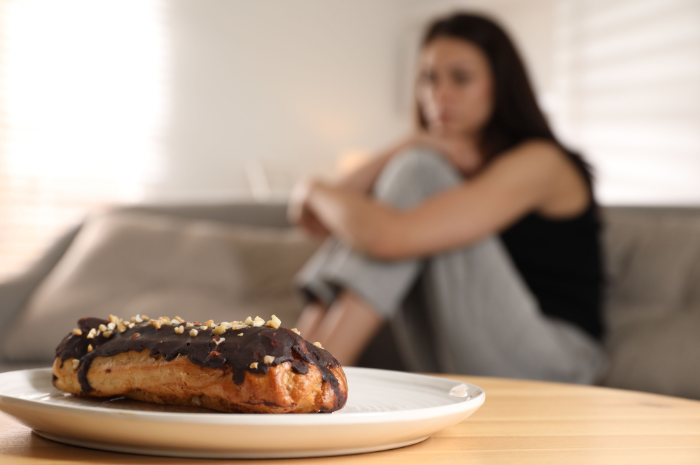Download your FREE ebook!
Should You be on a Gluten Free Diet?

GLUTEN!!!
It’s almost a scary word these days. But, what exactly is it? And should you be avoiding it?
Gluten is a type of protein found in many grains like wheat, rye, and barley. It’s responsible for the sticky glue-like consistency you get when flour is mixed with water. It’s commonly found in breads (and baked goods), pastas, cereals, soy sauce and other products made from these grains. And gluten-containing flours are added to a lot of processed foods too.
Gluten is not an essential nutrient, so you can have a healthy nutrient-rich diet without it. In fact, there are many foods available now that are “gluten-free.” Being gluten-free is popular, and many practitioners recommend that everyone avoid gluten. But, as with most “diets,” gluten-free is not guaranteed to be necessary or healthier.
Should you be on a gluten-free diet? Is it just a fad? Let’s talk about who should avoid gluten, and the signs and symptoms to look for to see if you might be sensitive to it too.
WHO SHOULD AVOID GLUTEN?
Some people are very sensitive to gluten and should avoid it altogether. If you have celiac disease, you definitely should avoid all traces of it. Celiac disease is a medical condition that is diagnosable with tests from your doctor. About 1% of adults have been diagnosed with celiac disease. However, it’s estimated that up to 80% of people who have it don’t even know it yet (that would jump to 5% of adults with celiac disease).
Celiac disease is an autoimmune condition. After eating even a trace of gluten the immune system attacks it as a foreign invader. This results in inflammation and severe damage to the gut lining. Some of the digestive symptoms include bloating, diarrhea, and constipation. Other symptoms of celiac disease include headache, fatigue, and skin rashes.
Long term effects of eating gluten, if you have celiac disease, are serious, including:
- Nutrient deficiencies
- Osteoporosis
- Infertility
- Nerve damage and,
- Seizures
Celiac disease aside, there are also people who have a wheat allergy, or are sensitive to gluten. Wheat allergies can be diagnosed by your doctor as well. “Non-celiac gluten sensitivity” occurs when people react to gluten, without celiac disease or wheat allergy. It’s estimated that up to 13% of people have non-celiac gluten sensitivity (way more than the 1-5% who have celiac disease).
There are many common signs of gluten sensitivity. The problem is that they’re not very specific. They don’t necessarily occur immediately after eating it, and they’re not always located in the gut.
Symptoms of non-celiac gluten sensitivity include:
- Digestive issues (bloating, flatulence, diarrhea, and stomach pain)
- Skin issues (eczema and redness)
- Bone and joint pain
- Fatigue and chronic tiredness
- Other symptoms like headache and mood issues
Like many people, my test results showed that I should be completely avoiding gluten. Although I do try to eat gluten-free most of the time, it’s not 100%, especially when eating out. I do feel much lighter and have better digestion when not just avoiding gluten, but grains all together….but that’s for another post.
MY FAVORITE GLUTEN-FREE GRAINS & FLOURS
- Oat Flour: is probably the easiest to use and find. Although oats are gluten-free, many are cross-contaminated as they are processed in the same facilities with gluten-containing crops. I use Bob’s Red Mill Gluten-Free flour. It’s great in pancakes and this vegan rangina.
- Almond Flour: I also love almond flour. I usually make it myself using almond pulp from making almond milk. Otherwise I would use BRM’s Almond Flour. Try using it in cookies and pizza dough.
- Chestnut Flour: A close contender to almond, and even better, however it’s difficult to get hold of in Kuwait. I usually buy a couple of bags while traveling or from Secrets Fine Food in Dubai. Try using it to make mamoul.
- Millet Flour: I’m still experimenting with millet with great results. However it has a slightly bitter taste, so it’s best if combined with other flours. I use BRM’s Millet Flour.
- Buckwheat: Buckwheat is amazing in baking especially if you can get hold of the lighter kind which has a milder taste. Love it in pancakes!
- Quinoa: Everyone’s favorite gluten-free grain, and it’s also widely available in most grocery stores. Of course it’s a classic pairing in salads, especially replacing bulger in taboule like the Crumbs Beetroot Taboule. Or use it to make fatayer dough.
BEFORE GOING GLUTEN-FREE, REMEMBER
If you suspect you should avoid gluten, check with your doctor first. The tests for celiac disease are more accurate if you’re still eating gluten. You can also get tested for a wheat allergy or sensitivity.
Some gluten-containing foods have nutrition that you’re going to have to get elsewhere:
- Folate/folic acid (vitamin B9). Many breads and cereals are fortified with this vitamin. To get it naturally, make sure you’re eating plenty of leafy greens. And if you’re planning to get, or are pregnant, talk to your healthcare professional about this critical nutrient.
- Dietary fiber. Whole wheat is a major source of this all-too-important and often forgotten nutrient. High-fiber gluten-free foods include brown rice, quinoa, flax seeds, chia seeds, beans/legumes, and fruits and veggies.
If you think you may be sensitive to gluten, then talk with your doctor about getting tested for celiac disease, gluten sensitivity and wheat allergy. And if you’re going gluten-free, choose nutrient-dense whole foods (not gluten-free processed junk foods) to make sure you get all the nutrition you need.
REFERENCES




Muna | 10th Sep 18
Thank you so much for such information. I was suffering from severe hair loss.. I went to a doctor and checked my blood, vitamins, hormones and every thing. He told me to switch to healthy food lifestyle. I did and no results. He finally found out the Gluten is blocking my hair to get all the nutrients I eat from the food, therefore I need to switch to gluten free diet. I am on it for about 8 months, and the results are amazing so far.
There are a lot of people who don’t know how gluten is affecting their body.
Thank you for enlightening us.
Arwa | 13th Sep 18
Thank you for sharing Muna!